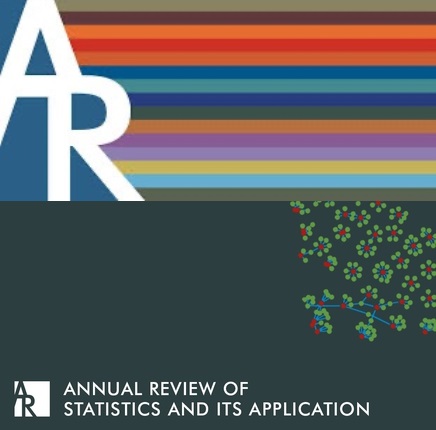Bayesian Inference for Misspecified Generative Models
IF 8.7
1区 数学
Q1 MATHEMATICS, INTERDISCIPLINARY APPLICATIONS
Annual Review of Statistics and Its Application
Pub Date : 2023-05-15
DOI:10.1146/annurev-statistics-040522-015915
引用次数: 3
Abstract
Bayesian inference is a powerful tool for combining information in complex settings, a task of increasing importance in modern applications. However, Bayesian inference with a flawed model can produce unreliable conclusions. This review discusses approaches to performing Bayesian inference when the model is misspecified, where, by misspecified, we mean that the analyst is unwilling to act as if the model is correct. Much has been written about this topic, and in most cases we do not believe that a conventional Bayesian analysis is meaningful when there is serious model misspecification. Nevertheless, in some cases it is possible to use a well-specified model to give meaning to a Bayesian analysis of a misspecified model, and we focus on such cases. Three main classes of methods are discussed: restricted likelihood methods, which use a model based on an insufficient summary of the original data; modular inference methods, which use a model constructed from coupled submodels, with some of the submodels correctly specified; and the use of a reference model to construct a projected posterior or predictive distribution for a simplified model considered to be useful for prediction or interpretation. Expected final online publication date for the Annual Review of Statistics and Its Application, Volume 11 is March 2024. Please see http://www.annualreviews.org/page/journal/pubdates for revised estimates.未指定生成模型的贝叶斯推理
贝叶斯推理是在复杂环境中组合信息的强大工具,在现代应用中越来越重要。然而,贝叶斯推理与一个有缺陷的模型可能产生不可靠的结论。这篇评论讨论了当模型被错误指定时执行贝叶斯推理的方法,在这里,通过错误指定,我们的意思是分析师不愿意采取行动,好像模型是正确的。关于这个主题已经写了很多,在大多数情况下,当存在严重的模型错误规范时,我们不相信传统的贝叶斯分析是有意义的。然而,在某些情况下,可以使用指定良好的模型来对指定错误的模型进行贝叶斯分析,我们将重点关注这些情况。讨论了三种主要的方法:限制似然方法,它使用基于原始数据不充分总结的模型;模块化推理方法,它使用由耦合子模型构造的模型,并正确指定一些子模型;并使用参考模型来构建一个预测后验或预测分布的简化模型被认为是有用的预测或解释。预计《统计年鉴及其应用》第11卷的最终在线出版日期为2024年3月。修订后的估计数请参阅http://www.annualreviews.org/page/journal/pubdates。
本文章由计算机程序翻译,如有差异,请以英文原文为准。
求助全文
约1分钟内获得全文
求助全文
来源期刊

Annual Review of Statistics and Its Application
MATHEMATICS, INTERDISCIPLINARY APPLICATIONS-STATISTICS & PROBABILITY
CiteScore
13.40
自引率
1.30%
发文量
29
期刊介绍:
The Annual Review of Statistics and Its Application publishes comprehensive review articles focusing on methodological advancements in statistics and the utilization of computational tools facilitating these advancements. It is abstracted and indexed in Scopus, Science Citation Index Expanded, and Inspec.
 求助内容:
求助内容: 应助结果提醒方式:
应助结果提醒方式:


